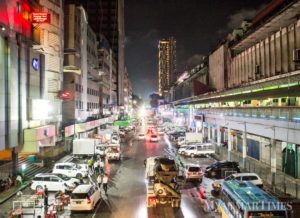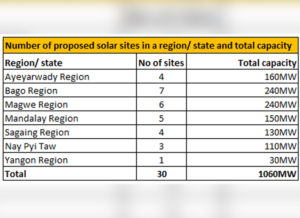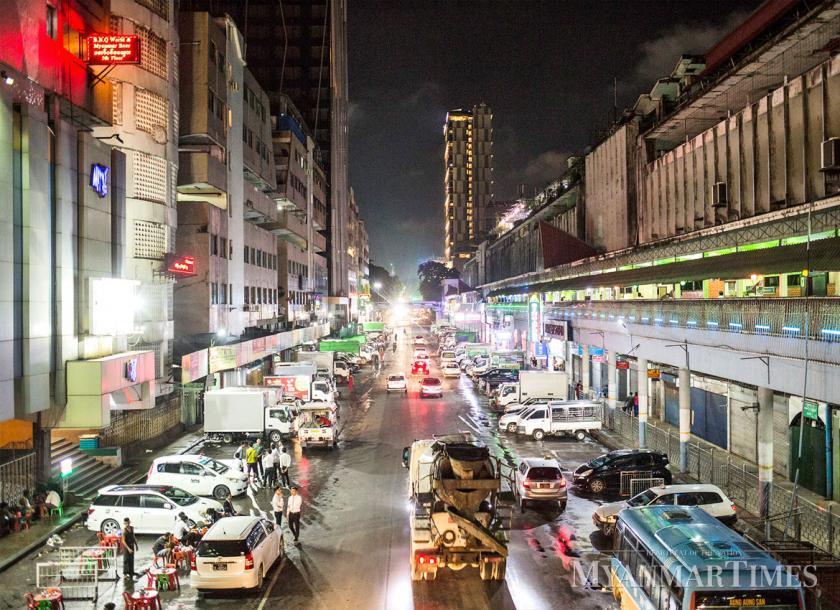
Myanmar’s hasty call for solar tender draws criticism from investors
The Ministry of Electricity and Energy (MOEE) is being criticised by the business community over a recent tender for solar power, with key foreign investors pressing for more time to prepare bids and for tough conditions to be revised.
The tender, issued by the ministry’s Electric Power Generation Enterprise (EPGE) on May 18, invites companies to bid for the construction of 30 ground-mounted solar plants capable of generating 1060MW of power in total under a 20-year build, operate and own basis. That’s about one third of the total dry-season generation capacity of Myanmar.
The proposed solar sites are in Ayeyarwady, Bago, Magwe, Mandalay, Sagaing, Nay Pyi Taw and Yangon’s Shwepyithar township.
The announcement comes after the government released its COVID-19 economic relief plan in late April. The plan includes expediting “solicitation of renewable energy projects after monitoring cost developments to assess the quality of available deals” before the end of 2020.
Not enough time
But European and US business groups say the one-month deadline is too tight to meet given the COVID-19 travel restrictions as well as time needed for land documentation.
Myanmar has banned international flights until June 1, imposed strict facility quarantine measures for business travellers and may extend the flight ban by decree. So, prospective developers cannot visit the country, make investment decisions or inspect the sites before bidding.
The deadline is difficult to achieve particularly because of the land acquisition requirement, commented Nishant Choudhary, a Yangon-based partner at law firm DFDL.
Even for developers established in Myanmar, the schedule “poses a great challenge” to complete the preparation of bid, valuation, land documentation and other necessary work, “particularly in the backdrop of COVID situation, where most of the international players have temporarily relocated from Myanmar to their home country. Also, those interested cannot fly into Myanmar,” he said.

According to a draft letter to the government seen by The Myanmar Times, the business groups are planning to ask for the deadline to be extended by at least two to three months.
EPGE superintendent engineer U Ye Tun Zaw told Frontier Myanmar that “one month is long enough” because the criteria “is not too much” and bidders “can easily prepare the documentation.”
The ministry will consider extending the deadline if companies request an extension, U Ye Tun Zaw added.
The Myanmar Times has written to the EPGE for comment.
Tough conditions
The business groups will also requet that the tender process revise problematic clauses, including bankability and the requirement for bidders to include taxes over the next 20 years in their price proposals.
The Request for Proposal (RFP) document, seen by this newspaper, sets out various conditions that appear unfavourable to investors.
For example, the plants need to start operation within 180 days after the letter of acceptance is issued, or face a penalty of K150,000 per MW per day for the delay period.
Environmental and Social Impact Assessments need to be submitted as part of the bid as well, according to the RFP. It is unclear how this could be achieved given that an assessment normally takes 1.5-2 years to complete.
The ministry has demanded a fixed tariff – including taxes – over the entire concession period of 20 years, and bidders are required to submit the bid with evidence of land acquisition for the plants. Although the bidder can propose the tariffs in dollars, the government will pay for the electricity in the local currency.
Requiring bidders to submit their price inclusive of taxes over the next 20 years is “discouraging and impractical” because it is not feasible to estimate the tax escalation over the next two decades, Mr Choudhary from DFDL said.
Land documentation is another key concern. The tight timeline raises the risks of land grabs because developers will either have to claim they have the documentation when they do not, or race through the process by negotiating with selected parties.
These risks are aggravated since the Virgin, Fallow and Vacant Land Law was amended last year, making it easier for big business to acquire land rights over local communities.
“Since the amendment, there have been reports of people losing so-called ‘VFV land’ after years of using it because a savvy and moneyed businessman slipped in the application to acquire a Form 7, the registration form for farmers,” said Vicky Bowman of the Myanmar Centre for Responsible Business, which has published a briefing paper for business on land and human rights due diligence. “Hurried tenders like this will exacerbate the problem.”
The ministry needs to allow enough time for developers to negotiate with customary land owners and users, she added, and the tender’s evaluation criteria ought to include community engagement and benefit sharing. “A month, even without COVID-19 restrictions, is not sufficient.”
The New Zealand government is advising the ministry on designing and implementing an on-grid solar tender but was surprised to see the tender rushed out, according to sources familiar with the discussion. “We are not directly involved in the preparation and release of this tender,” New Zealand ambassador Steve Marshall told Frontier magazine.
The move comes after the ministry called an “emergency” power tender for five LNG and gas plants last July, all of which were won by two Chinese-led consortia after many international firms refused to take part.
The projects were due for completion in early April but have yet to come onstream. No power purchase agreements have been inked either. Developers and the authorities cited COVID-19 as a reason for the delay.
The tender is also the first to be issued by the MOEE since the Anti-Corruption Commission started an investigation into the ministry in July 2019. It has yet to announce a conclusion to the probe.
Source: https://www.mmtimes.com/news/myanmars-hasty-solar-tender-draws-criticism-investors.html


